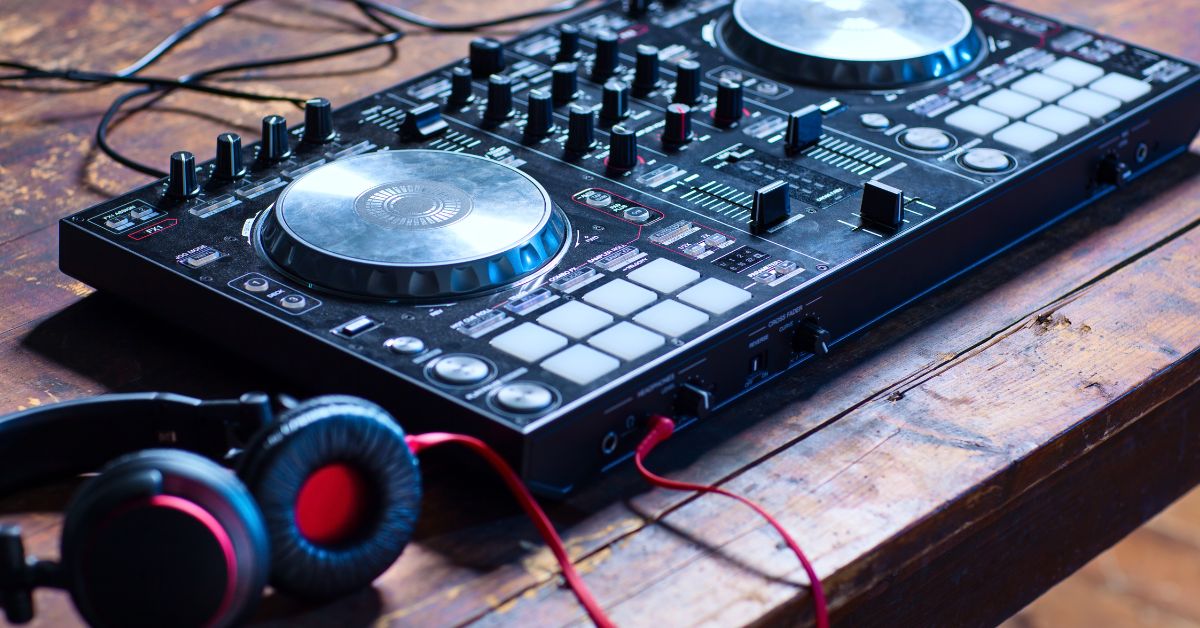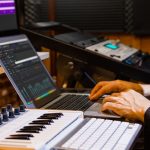Selecting the best DJ mixer is important for any upcoming and professional DJ. A good quality mixer can greatly improve your performance due to easy transitions and exact control over your sound. It is important to bring to attention the various factors to make sure that you choose a mixer that matches your requirements and style perfectly.
In this article, we will learn about the best mixers for Djs, understand what DJ simulators are, and how the DJ integrates with the mixer. If you are someone wanting to start a career or are looking to upscale in this industry, continue reading this article.
- What Types of DJ Mixers Suits My Style?
- Should I Choose an Analogue or Digital Mixer?
- Does the Mixer Have the Right Inputs and Outputs?
- What On-board Effects Do I Need?
- How Well Does the Mixer Integrate with DJ Software?
- What Should Be My Budget for a DJ Mixer?
- Are There Any Additional Features I Should Consider?
- Conclusion
What Types of DJ Mixers Suits My Style?
Should I Choose an Analogue or Digital Mixer?
Differences Between Analogue and Digital Mixers
Pros and Cons of Analogue Mixers
- Simplicity: Practically easy to use.
- Reliability: Fewer glitches and system failures.
- Sound Quality: Many fans and DJs like the richness and flavor of analogue sound.
- Fewer Features: Lesser effects and space for customization.
- Size and Weight: Compared to a digital mixer it’s heavy and big.
- No Presets: Need to manually change the setting of the mixer.
Pros and Cons of Digital Mixers
- Versatility: An array of effects and personalization options are available.
- Compactness: portable and light in weight.
- Presents and Automation: Capacity to save changes and organize tasks.
- Complexity: Complex features leading to a harder learning curve.
- Reliability: Higher chances of getting glitches and crashing.
- Sound Quality: Some say that compared to analogue digital sound lacks richness in its sound.
Does the Mixer Have the Right Inputs and Outputs?
For good performance and versatility having the correct number and types of inputs and outputs are important. It enables you to connect all your gear and keeps the audio quality good. And if you plan for expanding in the future a mixer with the correct number of inputs and outputs ensures your setup can grow with your requirements.
Importance of Inputs and Outputs
- Functionality: Make sure that your mixer can cater to all devices, like mics, laptops, turntables, and CDJs.
- Sound Quality: Single loss and sound quality can be maintained and prevented with proper connections.
- Versatile: You can manage an array of gig setups and styles if the combination of inputs and outputs is proper.
Considerations for Future Expansion and Connectivity
- Scalability: For future expansion get a mixer with extra inputs and outputs.
- Compatibility: Make sure that the mixer works well with both the latest and future audio equipment.
- Adaptability: To keep your mixer versatile and modern, seek features like USB ports, digital connections, and MIDI compatibility.
What On-board Effects Do I Need?
Overview of Common On-Board Effects
- Reverb
- Echo/Delay
- Filter
- Flanger
- Phaser
- Chorus
How Well Does the Mixer Integrate with DJ Software?
It’s crucial to consider a DJ mixer’s functionality with DJ software when choosing one. When your mixer is well integrated with your software, you can easily operate your software, improving the flow and joy of the performance. Look for mixers that are compatible with renowned DJ software like Traktor, Serato, and Rekordbox. This assures that you will mix smoothly and use all the features of the program. Software compatibility also simplifies the process of updating and accessing new features, ensuring your setup is versatile and up to date.
What Should Be My Budget for a DJ Mixer?
Considering your budget while selecting a DJ mixer is important. In India, DJ mixers are available in different ranges depending on the features they provide.
- Entry-Level Mixers: The range of an entry-level mixer can be anywhere around ₹7,000 to ₹20,000. These range mixers provide basic features like two channels, EQ control, and connectivity options. For example, Behringer VMX100USB and Numark M101. These mixers offer the need to start your career as a DJ without putting a load on your bank.
- Mid-Range Mixers: These mixers can cost you anywhere between ₹20,000 to ₹60,000. These mixers give more features and better quality compared to entry-level mixers. You will see better features like multiple channels, built-in effects, better and advanced EQ options, and good connectivity. For example, Pioneer DJM-250MK2 and Allen & Heath Xone:23C. For DJs who are serious about DJing and the functionality of the mixer, this is a great choice.
- High-End Mixers: These mixers can cost you anywhere around ₹60,000 and above. These mixers are for professionals as they are equipped with advanced features, better quality sound, and a strong build. These mixers have multiple channels, many effects, best-quality faders, and advanced connection options. For example, Pioneer DJ DJM-900NXS2 and Allen & Heath Xone:96.
Are There Any Additional Features I Should Consider?
- MIDI Mapping: Through this, you can easily control DJ software functions with your mixer. You can gain more control over your composition and improve your efficiency with MIDI mapping.
- Built-in Sound Card: By allowing connection directly to your PC it can remove the necessity for external audio interfaces and improve sound quality.
- Connectivity Options: Choose mixers with a number of input and output ports, including USB, XLR, RCA, and TRS, for connectivity. Flexibility in your setup and compatibility with various pieces of equipment are guaranteed with versatile connectivity.
























